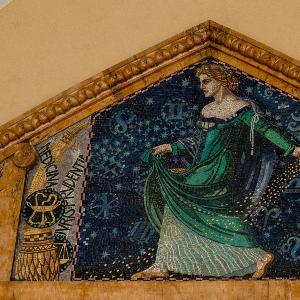About the doctoral program
Aside from their dissertation work, doctoral students have the opportunity to participate in a very wide range of advanced courses, reading groups and workshops with leading scholars. Recent courses have focused on all periods of ancient philosophy, ranging from Atomism and Empedocles to Plotinus and Porphyry, but also the medieval reception of ancient thinkers in Latin and Arabic as well as their contemporary relevance. The methods employed in these seminars range from philosophical analysis to textual criticism. Thus, complementing our emphasis on philosophical breadth and rigor, MUSAΦ gives doctoral students the opportunity to refine their knowledge of the classical languages and to do advanced philological work with ancient texts, including the authentication and editing of ancient texts. This broad spectrum of topics and approaches is reflected in the range of dissertation projects our doctoral students are currently pursuing.
Neither doctoral stipends, nor enrolment at MUSAΦ, require teaching. Nevertheless many doctoral students will find it useful and stimulating to teach on occasion in the Classics or Philosophy Departments alongside their dissertation writing. There is in general ample opportunity for teaching and a great deal of flexibility regarding topics.
The doctoral program and doctoral fellowships are intended for students who are prepared to begin dissertation research immediately. These students will have, at a minimum, basic skills in Greek or Latin (and in some cases, Arabic) and a familiarity with the outlines of ancient philosophy; in most cases they will have gained a stronger background in languages or in philosophy with an M.A. or equivalent in Philosophy or Classics. Students who are not yet prepared to begin dissertation research might be interested in the Masters Program in Ancient Philosophy at LMU.
Prospective applicants are invited to browse the “People” section of our website, and to contact any of the faculty or graduate students for additional information. Any and all inquiries (in English or in German) may also be directed to musaph@lmu.de. Applications are generally invited each winter, with a deadline in February.
How to apply
We are now accepting applications for funded positions starting in October 2026. To guarantee full consideration, please apply by Feb. 15, 2026.
To apply, you will need the following materials:
- A cover letter describing your academic background and interests. Applicants should also indicate whether they have applied for or secured external funding.
- A brief CV.An expose of the proposed dissertation project, including an initial bibliography (ca. 1,500-3000 words).
- A writing sample of at least 3,000 words. The writing sample need not be on the topic of the proposed dissertation.
- Copies (unofficial) of academic transcripts from university study.
In addition, two confidential letters of recommendation addressing, in detail, your qualifications for doctoral research, will need to be sent directly from the referees or from a letter service.
Materials should be sent to musaph@lmu.de or by post to:
Munich School of Ancient Philosophy
LMU Fakultät für Philosophie - Lehrstuhl III
Geschwister-Scholl-Platz 1
80539 München
Germany
Please contact us with any questions at: musaph@lmu.de.
Financial support
A limited number of three-year doctoral stipends are available through MUSAΦ. Unless directed otherwise, the admissions committee will consider all applicants for MUSAΦ fellowships. However, applicants are also encouraged to seek out external funding and should indicate whether they have secured funding when applying. There are many foundations in Germany that support doctoral study. Many deadlines for external funding are earlier than our application deadline.
Here is a list of scholarship programs and foundations:
Foreign students should also have a look at the Deutscher Akademischer Austauschdienst (German Academic Exchange Service).

